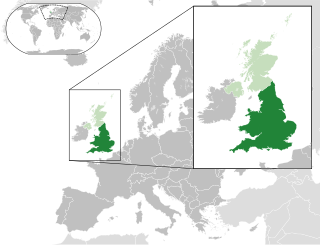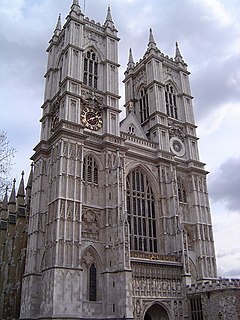
A nationwide census, commonly known as Census 1991, was conducted in the United Kingdom on Sunday 21 April 1991. This was the 19th UK census.

A census is the procedure of systematically acquiring and recording information about the members of a given population. This term is used mostly in connection with national population and housing censuses; other common censuses include traditional culture, business, supplies, and traffic censuses. The United Nations defines the essential features of population and housing censuses as "individual enumeration, universality within a defined territory, simultaneity and defined periodicity", and recommends that population censuses be taken at least every 10 years. United Nations recommendations also cover census topics to be collected, official definitions, classifications and other useful information to co-ordinate international practices.

The United Kingdom of Great Britain and Northern Ireland, commonly known as the United Kingdom (UK) or Britain, is a sovereign country located off the north-western coast of the European mainland. The United Kingdom includes the island of Great Britain, the north-eastern part of the island of Ireland, and many smaller islands. Northern Ireland is the only part of the United Kingdom that shares a land border with another sovereign state, the Republic of Ireland. Apart from this land border, the United Kingdom is surrounded by the Atlantic Ocean, with the North Sea to the east, the English Channel to the south and the Celtic Sea to the south-west, giving it the 12th-longest coastline in the world. The Irish Sea separates Great Britain and Ireland. The United Kingdom's 242,500 square kilometres (93,600 sq mi) were home to an estimated 66.0 million inhabitants in 2017.
Contents
Census 1991 was organised by the Office of Population Censuses and Surveys in England and Wales, the General Register Office for Scotland and the Census Office for Northern Ireland. [1] Detailed results by region, council area, ward and output area are available from their respective websites. The cost of the census was estimated at £140m, [2] or around £7 per household. 117,500 enumerators were employed to assist with collection of census forms in Great Britain. [3]
The Office of Population Censuses and Surveys (OPCS), was created in May 1970 through the merger of the General Register Office and the Government Social Survey Department.

England and Wales is a legal jurisdiction covering England and Wales, two of the four constituent countries of the United Kingdom. ’England and Wales’ forms the constitutional successor to the former Kingdom of England and follows a single legal system, known as English law.

The General Register Office for Scotland (GROS) was a non-ministerial directorate of the Scottish Government that administered the registration of births, deaths, marriages, divorces and adoptions in Scotland from 1854 to 2011. It was also responsible for the statutes relating to the formalities of marriage and conduct of civil marriage in Scotland. It administered the census of Scotland's population every ten years. It also kept the Scottish National Health Service Central Register.
The 1991 census was the first UK census to have a question on ethnic group. [4] In the 1991 UK census 94.1% of people reported themselves as being White British, White Irish or White Other with 5.9% of people reporting themselves as coming from other minority groups. [5] [6] [7] [8] [9] Other new questions were on limiting long-term illness and term-time address for students. A question about central heating replaced the previously-used question on outside toilets. [3]

An ethnic group or ethnicity a category of people who identify with each other, usually on the basis of a presumed common genealogy or ancestry or on similarities such as common language or dialect, history, society, culture or nation. Ethnicity is often used synonymously with the term nation, particularly in cases of ethnic nationalism, and is separate from but related to the concept of races.

A central heating system provides warmth to the whole interior of a building from one point to multiple rooms. When combined with other systems in order to control the building climate, the whole system may be an HVAC system.
The census was also noted for a significant undercount of the population. Despite being compulsory, a total of 572,000 people failed to respond to both the census form and follow-up interviews, 220,000 of them being males aged 20 to 29. It has been suggested that part of the lack of response could be due to people attempting to avoid registration for the poll tax. [10]

The Community Charge, commonly known as the poll tax, was a system of taxation introduced in replacement of domestic rates in Scotland from 1989, prior to its introduction in England and Wales from 1990. It provided for a single flat-rate per-capita tax on every adult, at a rate set by the local authority. The charge was replaced by Council Tax in 1993, two years after its abolition was announced.
A total of 342 people were prosecuted for not completing their census returns. [11]










